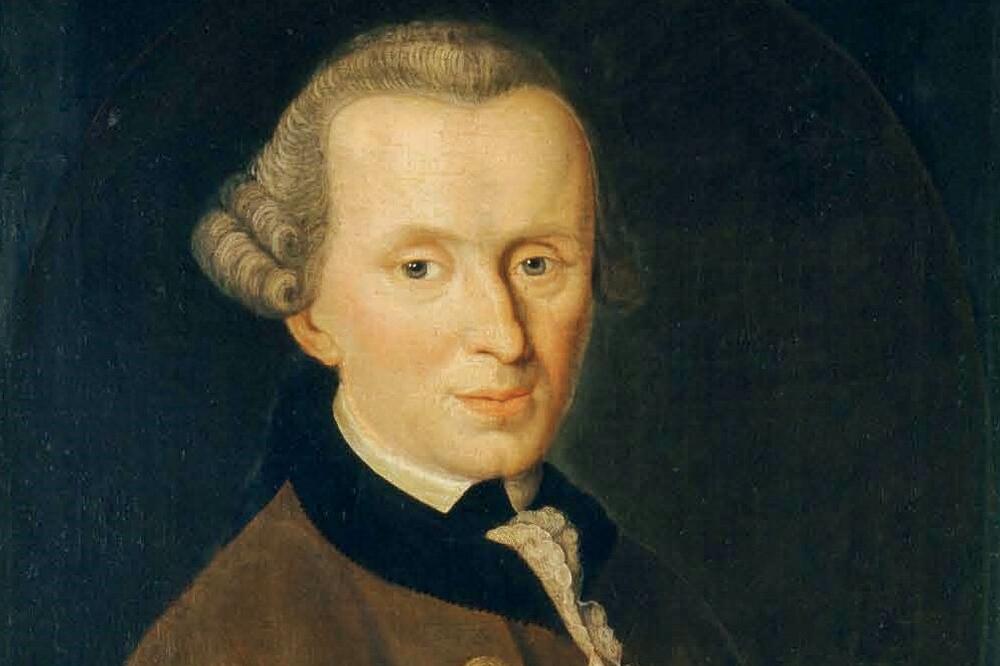The German philosopher Immanuel Kant is one of the most important thinkers of all time. Some of his thoughts are known even by those who have never studied philosophy or read his works. It also comes from him: "Do not do to anyone what you do not want someone to do to you". Simple, but Kant arrived at such pearls by reflecting on the entire universe and human existence in search of an answer to the essential question:
"What is man"?
He broke it down into three basic questions of philosophy and answered them in his three key works:
What can I know? - "Critique of the Pure Mind", 1781.
What should I do? - "Critique of the Practical Mind", 1788.
What can I hope for? - "Critique of the Judiciary", 1790.
Kant left behind a comprehensive work not only on philosophical questions, but also on the problems of astronomy, physics, geography and education.
The teachings and writings of Immanuel Kant laid the foundation for a new way of thinking. He made the Old Latin proverb "Sapere aude" which means "Dare to be wise" famous in the interpretation "Have the courage to use your reason", and it became the guiding thought of the Enlightenment movement.
"The starry sky above me and the moral law within me"
Unlike many philosophers before him, he believes that the human mind cannot answer questions such as the existence of God, the soul, or the beginning of the world. One simply has to endure it. Kant believed that man is capable of taking responsibility - for himself and for the world - and in his works he called on people to free themselves from any instructions for life (such as God's commandments). He believed that man should live guided by reason, and for this he formulated a basic rule:
"Act so that the maxim of your will may always be valid as a principle of general legislation." He called this the "categorical imperative" or "moral imperative". Today we would say it like this: Do only what is for the good of all.
In his Critique of Practical Mind, published when he was 64, he wrote:
"Two things always fill me with new and growing admiration and awe, the more often and the longer I think about them: the starry sky above me and the moral law within me".
This summarizes the issues that dominate Kant's thinking: the beauty of nature and its order and respect for the moral law in which the freedom of pure will is demonstrated.
About eternal peace
According to Kant, political action must also be fundamentally guided by the law of morality. Kant does not base human dignity and human rights on religion, on God, but philosophically, on reason.
In his work "On Perpetual Peace" in 1795, Kant recommended the "League of Nations" as a federal community of republican states. His work was a key idea for the establishment of the League of Nations after the First World War (1914-1918), the forerunner of the United Nations in whose human rights charter he left his mark.
In addition to international law, Kant also developed cosmopolitan law. In doing so, he rejects colonialism and imperialism and formulates ideas for the humane treatment of refugees: According to this philosopher, every man has the right to visit every country, but not necessarily the right to hospitality.
Kant and Königsberg
Kant's name is inextricably linked with Königsberg, then the capital of East Prussia. Königsberg (King's Hill) was founded in 1255 by the Teutonic Knights in honor of the Teutonic King Ottokar II of Bohemia.
In that important Baltic port and lively trading city, which in his time was called the Venice of the North, Kant was born into a relatively poor Lutheran family, his father was a merchant. However, at the age of 16, he began to study and received a higher status - an academic citizen. As a student, he earns a little by playing billiards and cards. After the death of his parents, he has to take care of his sisters and for eight years he works as a private teacher in the estates of Vlasetlin. Then, for the first and only time, he goes a little further than Königsberg.
Then he came back and worked as a docent for years. The University of Königsberg provided a room and a program of work, but not a salary: docents were paid by students who could choose between several lecturers. Kant was popular and always had enough students, that is, he could make a good living from it. At the age of 46, he finally fulfilled his wish and became a professor of metaphysics and logic at the university of his hometown.
Legendary lunches and walks
The lunches to which Professor Kant invited guests every day are legendary - always exactly at 1 o'clock in the afternoon. They were always a composition of favorite dishes and favorite wines (Kant hated beer), favorite guests and favorite topics. If the atmosphere was cheerful and relaxed, lunch would last several hours.
"One of the principles for this gathering at the table was this: the number of invitees must not be less than the number of Graces and not more than the number of muses, i.e. not less than three and not more than nine. There were never any women. And the conversations at this table were never about philosophy," writes Steffen Ditch, a German philosopher.
At exactly seven in the evening, Kant set off on his famous walk every day, always along the same route. There are many anecdotes about it. He did it with such regularity and accuracy that the people of Königsberg could set their watches, and it offered his "Kantists" admirers the opportunity to see and greet the famous professor, if they had not already had the honor of being invited to his table. Kant would always return the greeting, but he did not like to talk in the street.
Kant died at the age of almost 80, on February 12, 1804. Thousands of people came to the great professor's funeral. His grave, the so-called Stoa Kantiana, adorns the back wall of the famous Königsberg Cathedral. The Gothic church is one of the few historic buildings that survived the British bombing in World War 2 and the wave of demolition that followed in the Soviet state. Kaliningrad has been a Russian exclave since the end of World War II. It is located between Poland and Lithuania and today has about half a million inhabitants.
Was Kant a racist, a misogynist, a freak...?
"Kant is not the light of the world, but a whole shining solar system". What a compliment the writer Jean Paul (1763-1825) gave to his contemporary.
But other great thinkers found Kant's writings difficult to digest. Philosopher Moses Mendelssohn said that reading Kant drains the brain, and that he is unable to bear it.
Numerous prejudices still circulate about Kant. Some of them are addressed by the German philosopher and Kant researcher Otfried Hefe in his new book "Citizen of the World from Königsberg", including the questions - whether Kant was a "Eurocentric racist" or whether Kant discriminated against women. In both cases his answer is: "Yes, but...".
Kant is not a racist in today's sense, on the contrary: he condemned colonialism and slavery.
On this jubilee year in 2024, a whole series of books about the great philosopher will be published, in German and other languages, and many events around the world will mark the 300th birthday of Immanuel Kant.
Bonus video:





